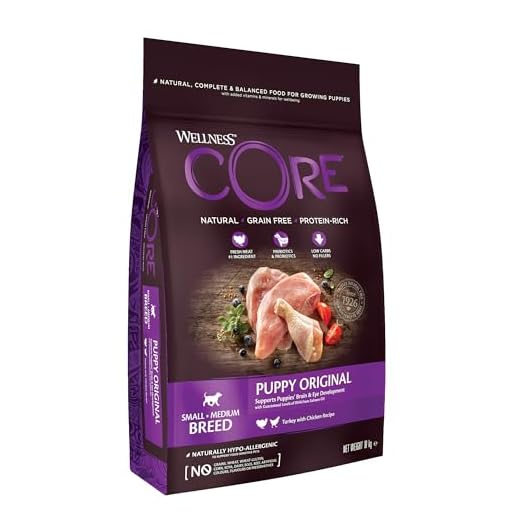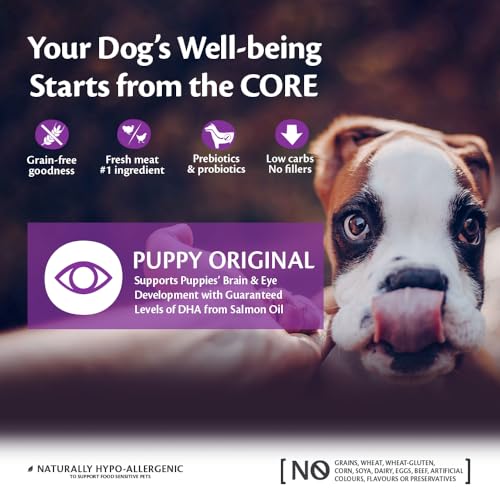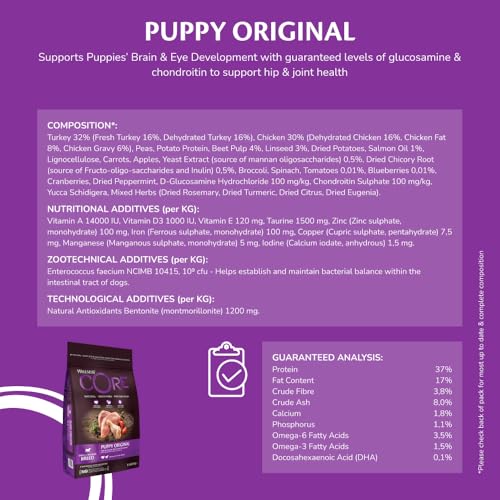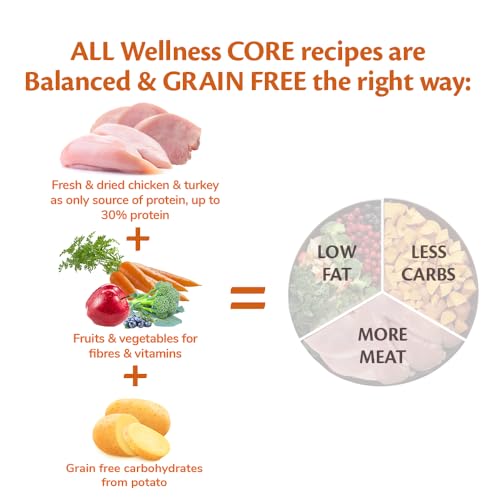







As a dedicated pet owner, I’ve spent countless hours researching and experimenting with various dog foods to ensure my young small dog gets the best nutrition possible. Understanding the specific dietary needs of young small breeds is crucial for their growth, energy, and overall health. Through trial and error, and with guidance from veterinarians, I’ve discovered what works best for my furry friend and I’m excited to share these insights with you.
Small dogs have unique nutritional requirements, especially during their formative years. They need food that’s rich in high-quality protein, essential fatty acids, and vitamins to support their rapid growth and active lifestyle. However, not all dog foods are created equal. The market is flooded with options, making it challenging to choose the right one. My goal is to simplify this process for you by highlighting the best choices available and explaining why they stand out.
In this article, I’ll cover various aspects such as ingredient quality, nutritional balance, brand reputation, and my personal experiences. I’ll also delve into the specific needs of young small dogs, including calorie intake, kibble size, and how to address common health concerns like dental issues and allergies. By the end of this guide, you’ll be equipped with the knowledge to make an informed decision, ensuring your young small dog thrives on a diet that supports their health and happiness.
Why Choosing the Right Food for Young Small Dogs Matters
When I first brought my young small dog home, I realised quickly that selecting the appropriate food wasn’t just about keeping him full. The right nutrition plays a critical role in his growth, energy levels, and overall health. Small breed puppies have unique dietary needs that differ significantly from those of larger breeds, and meeting these needs is crucial for their development.
Small dogs often have faster metabolisms and require a diet that supports their high energy levels. Their smaller stomachs mean they can’t eat large quantities at once, so their food must be nutrient-dense to ensure they get all the necessary vitamins and minerals in every meal. This is why the choice of food is so important–it directly impacts their growth, immune system, and even their coat condition.
Key Considerations for Choosing Dog Food
- Nutritional Balance: The food must provide a balanced mix of proteins, fats, and carbohydrates. Proteins are essential for muscle development, fats supply necessary energy, and carbohydrates ensure a steady energy release throughout the day.
- Calcium and Phosphorus: These minerals are vital for bone development, particularly in young small dogs. An imbalance can lead to skeletal issues, so the food should have the right ratio to support healthy growth.
- Digestibility: High-quality ingredients that are easy to digest help prevent gastrointestinal issues and ensure that your dog is absorbing all the nutrients they need.
- Portion Size: Since small dogs eat less at one time, the food should be available in smaller kibble sizes to make it easier for them to chew and digest.
Choosing the right food for young small dogs isn’t just about feeding them; it’s about nurturing their development and setting them up for a healthy life. By paying attention to the specific dietary requirements of small breeds, we can ensure our pets grow strong, energetic, and happy.
Nutritional Needs for Small Breed Puppies
When it comes to small breed puppies, their nutritional needs are quite distinct compared to larger breeds. These little bundles of energy have a faster metabolism and require more calories per pound of body weight. Providing the right nutrition is crucial to support their rapid growth and development.
Ensuring that your small breed puppy gets a balanced diet tailored to their specific needs will set them up for a healthy life. From the right mix of proteins to essential vitamins and minerals, understanding their dietary requirements will help you choose the best food for your furry friend.
Key Nutritional Components
-
High-Quality Protein: Protein is essential for the growth and development of muscles and tissues. Small breed puppies need a diet rich in high-quality animal protein to support their active lifestyle and rapid growth.
-
Healthy Fats: Fats are a concentrated source of energy, which is crucial for small breeds with high metabolic rates. Look for foods with omega-3 and omega-6 fatty acids to support brain development, skin health, and a shiny coat.
-
Carbohydrates: Carbohydrates provide the energy needed for daily activities. Whole grains, vegetables, and fruits are excellent sources of digestible carbohydrates, offering both energy and dietary fibre.
-
Vitamins and Minerals: Essential vitamins and minerals support overall health and development. Calcium and phosphorus are particularly important for strong bones and teeth, while antioxidants like vitamins E and C boost the immune system.
-
DHA (Docosahexaenoic Acid): This omega-3 fatty acid is crucial for brain and eye development in puppies. Ensuring your puppy’s food includes DHA can help support cognitive function and vision.
Feeding your small breed puppy a diet that meets these nutritional requirements will help ensure they grow into healthy, happy dogs. Always consult with your veterinarian to tailor their diet to their specific needs and monitor their growth and development closely.
Dry vs. Wet Dog Food: What’s Best for Young Small Dogs?
When choosing the right food for young small dogs, the decision between dry and wet dog food can be challenging. Each type has its own set of advantages and potential drawbacks, making it essential to consider the specific needs of your pet. Let’s explore the benefits and considerations of both dry and wet dog food to help you make an informed decision.
Small breed puppies have different nutritional requirements compared to larger breeds, including higher metabolism rates and smaller stomachs. These factors play a crucial role in determining the most suitable type of food for your young dog. Understanding these nuances will aid in selecting the best option for your furry friend.
Advantages of Dry Dog Food
- Convenience and Shelf Life: Dry dog food, or kibble, is easy to store and has a longer shelf life compared to wet food. This makes it a practical choice for busy pet owners.
- Dental Health: The crunchy texture of dry food helps in reducing plaque and tartar build-up, promoting better dental hygiene for your dog.
- Cost-Effectiveness: Generally, dry dog food is more affordable and offers better value for money, especially if you’re feeding a small dog with a voracious appetite.
Benefits of Wet Dog Food
- Hydration: Wet dog food contains a high moisture content, which can be particularly beneficial for small dogs who might not drink enough water.
- Palatability: Many dogs find wet food more appealing due to its rich aroma and texture, making it a great option for picky eaters.
- Nutrient Density: Wet food often contains higher levels of protein and fats, which are essential for the growth and development of young dogs.
Considerations for Choosing the Right Food
When deciding between dry and wet dog food, consider your dog’s specific needs and lifestyle. If your young small dog has dental issues, a combination of both types might be beneficial. Alternatively, if hydration is a concern, wet food can ensure your pet stays well-hydrated.
Ultimately, the best choice may involve a mix of both dry and wet food, providing a balanced diet that caters to all aspects of your dog’s health. Consulting with your veterinarian can also provide valuable insights tailored to your pet’s unique requirements.
Grain-Free vs. Grain-Inclusive: Which is Better for Your Puppy?
As a new puppy owner, one of the first important decisions you’ll need to make is choosing the right food for your young, small dog. Among the myriad of options available, the debate between grain-free and grain-inclusive diets often stands out. Understanding the differences and potential benefits of each can help you make an informed choice tailored to your puppy’s specific needs.
Grain-free diets have gained popularity in recent years, primarily due to concerns over food allergies and sensitivities. These diets eliminate grains like wheat, corn, and rice, replacing them with alternative sources of carbohydrates such as sweet potatoes, peas, and lentils. Proponents argue that a grain-free diet is more aligned with a dog’s ancestral eating habits, potentially leading to fewer digestive issues and skin problems.
The Case for Grain-Free Diets
Supporters of grain-free diets often highlight that grains are not a natural part of a dog’s ancestral diet. They believe that by eliminating grains, dogs might experience improved digestion and reduced inflammation. This can be particularly beneficial for puppies with known grain allergies or sensitivities. Furthermore, grain-free options often contain higher levels of protein and fewer fillers, which can support healthy growth and development in young, small dogs.
The Benefits of Grain-Inclusive Diets
On the other hand, grain-inclusive diets offer their own set of advantages. Grains like rice and oats are excellent sources of essential nutrients and fibre, which can aid in digestion and provide sustained energy levels for active puppies. These diets are typically more affordable and can be just as nutritious as their grain-free counterparts when formulated with high-quality ingredients. Moreover, the concern over grains causing allergies is often overstated, as true food allergies in dogs are relatively rare.
Making the Right Choice for Your Puppy
When deciding between grain-free and grain-inclusive diets, consider your puppy’s individual health needs, lifestyle, and any recommendations from your veterinarian. Observing your puppy’s reaction to different foods, such as changes in coat condition, energy levels, and stool quality, can provide valuable insights. Ultimately, the best diet for your puppy is one that supports their overall health and well-being.
Here’s a quick comparison to help you weigh the pros and cons:
| Grain-Free | Grain-Inclusive | |
|---|---|---|
| Pros | Potentially fewer allergies, higher protein, aligns with ancestral diet | More affordable, good source of fibre, balanced nutrients |
| Cons | Can be more expensive, limited research on long-term effects | May contain fillers, possible allergens for some dogs |
By carefully considering these factors, you can choose a diet that will support your puppy’s growth and keep them healthy and happy. Always consult with your vet to ensure you’re making the best decision for your furry friend’s unique needs.
Highly Recommended Dog Food Brands for Young Small Breeds
When it comes to feeding my young small breed dog, I always seek the best nutrition tailored to their unique needs. The right dog food ensures they receive adequate energy, maintain a healthy weight, and develop strong bones and muscles. Over the years, I have researched and tested various brands, and I’ve found a few that stand out for their quality and benefits.
Choosing the perfect food for your young small breed can be overwhelming with so many options available. To make this process easier, I have compiled a list of dog food brands that have consistently provided excellent nutrition and support for my furry friend’s growth and overall health. Below are my top recommendations based on personal experience and thorough research.
Quality Dog Food Brands for Young Small Breeds
-
Royal Canin Small Puppy: This brand offers a formula specifically designed for small breed puppies. It contains a precise combination of proteins, fats, and carbohydrates to support high energy levels. The kibble size is perfect for small jaws, making it easy for my pup to chew and digest.
-
Hill’s Science Diet Small Paws Puppy: Known for its research-backed recipes, Hill’s Science Diet provides balanced nutrition with high-quality ingredients. The Small Paws Puppy formula includes DHA from fish oil for brain and eye development, essential for young dogs.
Hot PickHomemade Dog Food Guide BookStep-by-step recipes for safe mealsThis guide offers a comprehensive and easy-to-follow approach to making nutritious homemade meals for your dog, ensuring their health and enjoyment. It's perfect for pet owners seeking to provide tailored diets for their canines. -
Blue Buffalo Life Protection Small Breed Puppy: This brand uses real meat as the first ingredient, ensuring a rich source of protein. It also includes whole grains, garden veggies, and fruit. The LifeSource Bits, a blend of antioxidants, vitamins, and minerals, are particularly beneficial for immune system health.
-
Nutro Ultra Puppy: Nutro Ultra offers a premium blend of lean proteins from chicken, lamb, and salmon. Their formula is enriched with a superfood medley, providing essential nutrients for growth. I appreciate that it avoids artificial colours, flavours, and preservatives.
-
Wellness Complete Health Small Breed Puppy: This holistic food option includes high-quality proteins and wholesome grains. Wellness focuses on supporting optimal energy levels, healthy skin and coat, and proper bone and brain development with its thoughtfully crafted recipes.
Feeding my young small breed dog these brands has shown noticeable improvements in their energy levels, coat shine, and overall health. It’s crucial to select a brand that suits your dog’s specific needs and preferences, ensuring they grow into happy and healthy adults.
Homemade Dog Food Recipes for Small Breed Puppies
Creating homemade meals for my small breed puppy has been a rewarding and nutritious alternative to store-bought options. By preparing food at home, I can ensure my puppy gets fresh, high-quality ingredients that cater to their specific dietary needs. Plus, it’s a great way to avoid fillers and artificial additives often found in commercial dog foods.
When I started making homemade meals, I focused on balancing proteins, carbohydrates, and fats, while incorporating essential vitamins and minerals. Here are a few recipes I’ve tried that have worked wonders for my small breed puppy.
Recipes for Nutritious Homemade Puppy Food
Chicken and Veggie Delight
- Ingredients:
- 1 cup of cooked chicken breast, diced
- 1/2 cup of cooked sweet potatoes, mashed
- 1/4 cup of peas
- 1/4 cup of carrots, finely chopped
- 1 tablespoon of olive oil
- Instructions:
- Cook the chicken breast thoroughly and dice it into small pieces.
- Steam the sweet potatoes, peas, and carrots until tender.
- Combine all the ingredients in a large bowl, adding the olive oil and mixing well.
- Let it cool before serving it to your puppy.
Beef and Rice Medley
- Ingredients:
- 1 cup of lean ground beef
- 1/2 cup of brown rice, cooked
- 1/4 cup of spinach, chopped
- 1/4 cup of pumpkin puree
- 1 teaspoon of fish oil
- Instructions:
- Brown the ground beef in a pan, draining any excess fat.
- Cook the brown rice as per package instructions.
- Mix the cooked beef, rice, spinach, and pumpkin puree in a bowl.
- Add the fish oil and blend thoroughly.
- Cool before serving to ensure it’s safe for your puppy to eat.
These recipes have provided my puppy with a balanced diet rich in protein, vitamins, and minerals. Always consult with your vet before making any significant changes to your puppy’s diet, and make sure to introduce new foods gradually to monitor for any adverse reactions.
Common Feeding Mistakes to Avoid with Small Dogs
Feeding small dogs can be a challenging task. It’s easy to make mistakes that could impact their health and well-being. Ensuring that you avoid common pitfalls is essential to keeping your little friend healthy and happy.
As a devoted pet owner, I’ve learned that understanding the specific dietary needs of small dogs is crucial. Over the years, I’ve seen how minor errors in feeding can lead to significant health issues. Here are some of the most common feeding mistakes to avoid.
Overfeeding and Underfeeding
Small dogs have tiny stomachs, and it’s crucial to feed them the right amount of food. Overfeeding can lead to obesity, which poses serious health risks like diabetes and joint problems. On the other hand, underfeeding can result in malnutrition, leading to a lack of essential nutrients.
Portion control is vital. Use measuring cups or a kitchen scale to ensure you’re providing the correct portion size according to the food manufacturer’s guidelines or your vet’s recommendations.
Feeding Table Scraps
It’s tempting to give small dogs table scraps, especially when they look at you with those pleading eyes. However, this can lead to an unbalanced diet and introduce harmful foods. Many human foods, such as chocolate, onions, and grapes, are toxic to dogs.
Stick to a diet of high-quality dog food designed for their specific needs. If you want to give them treats, choose ones formulated for small dogs and use them sparingly.
Ignoring Specific Nutritional Needs
Small dogs often have unique nutritional requirements. They typically need more calories per pound than larger dogs due to their faster metabolism. Failing to provide a diet rich in the necessary nutrients can result in deficiencies.
- Choose a food specifically designed for small breeds.
- Ensure it contains balanced levels of proteins, fats, vitamins, and minerals.
- Consider their age, as puppies have different needs compared to adult or senior dogs.
Feeding Irregularly
Maintaining a consistent feeding schedule is crucial. Irregular feeding can cause digestive issues and behavioural problems. Small dogs benefit from having their meals divided into two or three small portions throughout the day rather than one large meal.
Not Providing Enough Fresh Water
Water is essential for all dogs, but small dogs are particularly prone to dehydration. Ensure that fresh water is always available. Regularly clean the water bowl to prevent bacteria buildup.
Avoid these common feeding mistakes to ensure your small dog stays healthy and enjoys a long, happy life. By paying attention to their specific needs and being mindful of their diet, you can prevent many health issues down the road.
Transitioning Your Small Puppy to Adult Dog Food
Transitioning your small puppy to adult dog food is a crucial step in ensuring their health and well-being as they grow. While it may seem simple, this process requires careful attention to your pup’s dietary needs and gradual adjustments to prevent any digestive upset.
Follow these steps to smoothly transition your small puppy to adult dog food:
- Consult Your Veterinarian: Before making any changes to your puppy’s diet, consult your veterinarian. They can provide tailored advice based on your puppy’s breed, size, age, and health status.
- Gradual Transition: Start by mixing a small amount of adult dog food with your puppy’s current food. Gradually increase the proportion of adult food over 7-10 days until your puppy is solely eating the new food.
- Monitor Your Puppy: Keep a close eye on your puppy during the transition period. Look out for any signs of digestive upset such as diarrhea, vomiting, or lack of appetite. If any issues arise, slow down the transition process or consult your vet.
- Adjust Serving Size: Adult dog food may have different nutrient concentrations compared to puppy food. Adjust the serving size according to the feeding guidelines provided on the adult food packaging and your puppy’s individual needs.
- Stay Consistent: Once your puppy has successfully transitioned to adult dog food, maintain consistency in their feeding routine. Stick to regular mealtimes and avoid frequent changes in diet to support your puppy’s digestive health.
By following these steps and being attentive to your puppy’s needs, you can ensure a smooth transition to adult dog food and support their growth and development for years to come.
Best Dog Food For Young Small Dogs
Features
| Part Number | SF7.5PUPPY |
| Model | SF7.5PUPPY |
| Color | Brown |
| Size | 7.5 kg (Pack of 1) |
| Language | English |
Features
| Part Number | 10773 |
| Model | 10773 |
| Size | 10kg |
| Language | French |
Features
| Part Number | HARRGSFCP-10 |
| Model | HARRGSFCP-10 |
| Release Date | 2024-01-01T00:00:01Z |
| Size | 10 kg (Pack of 1) |
Features
| Is Adult Product | |
| Release Date | 2025-05-17T00:00:01Z |
| Language | English |
| Number Of Pages | 213 |
| Publication Date | 2025-05-17T00:00:01Z |
Q&A:
What is the best dog food for young small dogs?
The best dog food for young small dogs should be specifically formulated for their size and age, providing the right balance of nutrients for their growth and development. Look for options that contain high-quality protein sources, essential vitamins and minerals, and avoid artificial additives or fillers.
Should I consider any specific ingredients when choosing dog food for young small dogs?
Absolutely. When choosing dog food for young small dogs, prioritize options that contain easily digestible proteins like chicken or turkey, healthy fats for energy and coat health, and essential nutrients such as calcium and phosphorus for strong bones and teeth. Avoid foods with excessive fillers, artificial colours, or preservatives.
























